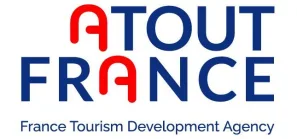
- The investment includes to LNG-hybrids, arriving in spring 2025 called Saint-Malo and Guillaume de Normandie
- On LNG propulsion, lower emissions come from day one: air quality pollutants like sulphur and soot are virtually eliminated, plus there’s a 90% reduction on NOx.
- LNG is the best solution today, but when more renewable options like e-methane or bio-methane come on stream, the ships will be ready to run on them
- Investment in shore-side power infrastructure is key: hybrid ships will be plug-in ready, promising zero emissions in port, as well as reduced emissions at sea
LNG-powered ships are cleaner today, but they could be even greener tomorrow.
That’s because they are what is described as fuel agnostic. LNG is certainly the best fuel available to shipping companies today. But when even more renewable options like e-methane or bio-methane come on stream, Brittany Ferries LNG ships will be ready to run on them.
The ship will therefore automatically become greener in the years to come, following advances in fuel technology, distribution and supply.
Of course, cleaner fuel is not the only thing that makes LNG vessels more efficient. All Brittany Ferries’ LNG ships will be E-Flexer class vessels. These feature long, slender hulls and a design that hint at a high level of hydrodynamic performance below the surface of the water.
In addition, powerful real-time data analysis on board the ship and the development of machine learning mean energy efficiency can be optimised during every voyage, whatever the conditions at sea.
Investment in a cleaner fleet
Fleet renewal is one of the pillars of Brittany Ferries’ recovery from the Covid crisis. Between 2019 and 2025 five new vessels will have joined the fleet.
The investment includes to LNG-hybrids, arriving in spring 2025 called Saint-Malo and Guillaume de Normandie. They will replace two of the oldest (but much loved) ships in the Brittany Ferries fleet, Bretagne and Normandie. The hybrids will serve UK-France routes and will operate on the same principle as a hybrid car. At sea, power will come from cleaner LNG. But in a first on the Western Channel, they will also operate partially or completely on battery power, for example when arriving and departing ports.
Crucially they will also be ready to plug-in to shore-side power, when port infrastructure allows. This will facilitate recharging of batteries while at berth, as well as providing power for systems like air conditioning, heating and lighting on board.
“Brittany Ferries is proud to be taking a lead by investing in technologies of tomorrow,” said Christophe Mathieu Brittany Ferries CEO. “We have a responsibility to bring cleaner vehicles to market and that is what we have done. But it’s not just shipping companies like ours that have a role to play on our journey to a more sustainable future. An integrated approach is essential, one where fuel companies, port partners and governments do their bit to support the necessary investment in infrastructure like shore-side power. The more we join-up, the greater the benefits will be.”

Fuelling the future
Brittany Ferries is in advanced discussions with ports like Portsmouth, Plymouth, Ouistreham and St Malo as well as government stakeholders on both sides of the Channel, to push for the rapid development of shore side power infrastructure. This will allow hybrid vessels to plug-in while docked and to recharge their batteries, thus delivering zero emissions in port and boosting all-electric power while manoeuvring.
LNG power and its benefits
As the name implies Liquefied Natural Gas is a liquid that is created from naturally occurring gas. The gas is cooled to temperatures of -162 degrees Celsius, which shrinks it by a factor of 600, creating a liquid.
Colourless and odourless, the fuel powers thousands of cars and commercial vehicles around the world. It’s a more efficient combustion process than burning traditional fossil fuels, benefits from a 20% reduction in carbon dioxide emissions from the funnel. Reductions in air quality pollutants aer even more significant. Sulphur and particulate (soot) emissions are virtually eliminated, while nitrogen dioxide NOx emissions are cut by around 90%.
LNG is now increasingly common as a fuel for passenger ships. Ferry lines such as Viking Line and Tallink, as well as cruise lines like Carnival, Aida and MSC, have turned to LNG.
Ships operating on LNG have an excellent safety record and are required to comply with a new set of regulations known as the IGF code*. This has been specifically developed for the use of gas as a propellant, with safety elements drawn directly taken from ocean-going LNG carriers. This sector has operated safely for the last forty years, with many LNG carriers able to handle up to 120 000 m3 of LNG.
LNG is clearly a fuel for the future. It is favoured by regulators and everyone who is concerned about protecting our planet. The European Commission’s Energy Roadmap 2050 for example, points to natural gas as key to aspirations for clean energy targets in 2050.
*IGF Code – International Code of Safety for Ships Using Gases or Other Low Flashpoint Fuels
Ends.
About Brittany Ferries
Brittany Ferries was conceived in 1972, starting life as a freight-only service on 2nd January the following year. The first sailing linked Roscoff in Brittany with Plymouth in the South of England and carried a cargo of artichokes and cauliflowers. Since then the company has progressively launched, then strengthened shipping routes. Today millions of passengers and businesses transporting goods by sea across the so-called Atlantic Arc (France, UK, Spain and Ireland) rely on the links forged through six decades of operation. In addition to cutting congestion and emissions on busy roads, these motorways-of the sea have helped enrich local communities, creating jobs and nurturing international tourism.
More details here: https://bit.ly/3kgA2Zs
Press contacts:
Nigel Wonnacott nigel.wonnacott@brittanyferries.com
Christopher Jones Christopher.jones@brittanyferries.com
